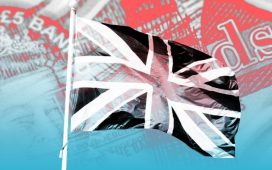Unlock the Editor’s Digest for free
Roula Khalaf, Editor of the FT, selects her favourite stories in this weekly newsletter.
Uber is facing a multimillion-pound lawsuit from London’s black-cab drivers, reviving a long-simmering battle between the US ride-hailing app and the UK capital’s taxi trade.
The action, which will be filed in London’s High Court on Thursday on behalf of more than 10,500 cab drivers, alleges that Uber improperly obtained a licence from Transport for London in 2012.
The licence meant the San Francisco-based company unlawfully took business away from other drivers, according to RGL Management, a litigation claims management company representing the drivers.
The value of the claim is estimated at a minimum of £250mn, with individual drivers potentially eligible for compensation of as much as £25,000, according to RGL.
“Uber seems to believe it is above the law and cabbies across London have suffered loss of earnings because of it,” Garry White, who has driven a black cab for 36 years, said in a statement. “It is time they were held to account.”
The lawsuit, which spans May 2012 to March 2018, revives a claim the cab drivers first attempted to bring against Uber in 2018 alleging the company misled TfL about how its operating system worked. After spending more than a year building up awareness of the suit among the drivers, the pandemic and resulting loss of trade to taxi drivers meant the action was temporarily abandoned.
“These old claims are completely unfounded,” Uber said. “Uber operates lawfully in London, is fully licensed by TfL, and is proud to serve millions of passengers and drivers across the capital.”
The new claim comes despite efforts by Dara Khosrowshahi, Uber’s chief executive since 2017, to rebuild relations with licensed cab drivers, after the company’s co-founder Travis Kalanick described the industry as “an asshole named taxi”.
Uber has had a fraught relationship with London for a number of years. In 2017, TfL refused to renew the taxi operator’s licence after concluding it was not a “fit and proper” operator. Khosrowshahi wrote an open letter at the time apologising for past mistakes and pledging to fight the decision.
Uber was again denied a renewal in 2019, which it successfully appealed. TfL granted the company a 30-month licence in 2022, with the permit up for renewal by the end of September this year.
The company was forced to classify its UK drivers as workers in 2021, entitling them to holiday pay and pensions, after losing a high-court challenge led by a group of Uber drivers. The case marked a fundamental shift in its business model.
Licensed taxis have helped Uber combat driver shortages since the pandemic and offer ride-hailing services where its traditional “gig worker” model is banned, making cabs a familiar sight on its app from New York to Barcelona.
Hundreds of black-cab drivers have signed up to drive for Uber since November, when it launched its latest effort to add traditional London taxis to its transport app.
The service went live for a limited number of Uber customers in April, despite continued opposition to the scheme from the Licensed Taxi Drivers’ Association, which represents about two-thirds of London’s 15,000 black-cab drivers.
Law firm Mishcon de Reya is acting on behalf of the claimants, with Katch Investment Group funding the action.








